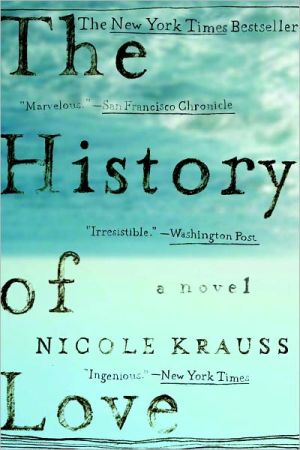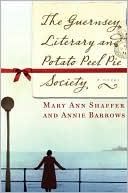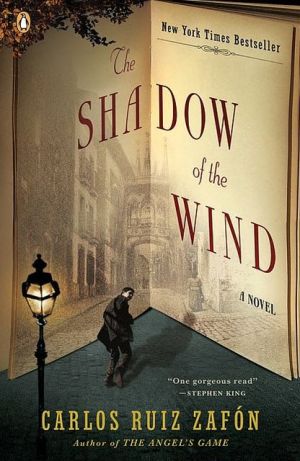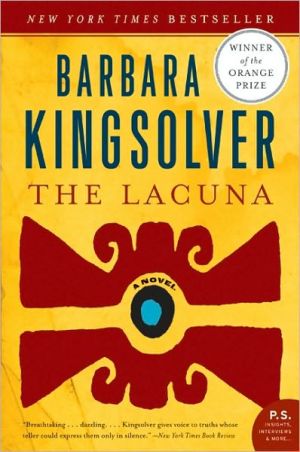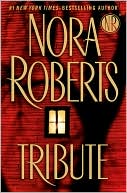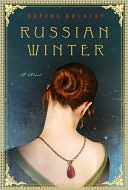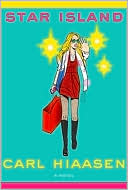The History of Love
ONE OF THE MOST LOVED NOVELS OF THE DECADE\ A long-lost book reappears, mysteriously connecting an old man searching for his son, and a girl seeking a cure for her widowed mother's loneliness.\ Leo Gursky taps his radiator each evening to let his upstairs neighbor know he’s still alive. But it wasn't always like this: in the Polish village of his youth, he fell in love and wrote a book… Sixty years later and half a world away, fourteen-year-old Alma, who was named after a character in that...
Search in google:
The illuminating national bestseller: "Vertiginously exciting…vibrantly imagined….[Krauss is] a prodigious talent."—Janet Maslin, New York TimesThe New York Times - Janet MaslinThere are also two kinds of writers given to the verbal tangents and cartwheels and curlicues that adorn Ms. Krauss's vertiginously exciting second novel: those whose pyrotechnics lead somewhere and those who are merely showing off. While there are times when Ms. Krauss's gamesmanship risks overpowering her larger purpose, her book's resolution pulls everything that precedes it into sharp focus. It has been headed for this moment of truth all along.
\ From Barnes & NobleBarnes & Noble Discover Great New Writers\ "Once upon a time a man who had become invisible arrived in America." An unlikely and unforgettable hero, Leo Gursky is a survivor -- of war, of love, and of loneliness. A retired locksmith, Leo does his best to get by. He measures the passage of days by the nightly arrival of the delivery boy from the Chinese restaurant and has arranged a code with his upstairs neighbor: Three taps on the radiator means, "ARE YOU ALIVE?, two means YES, one NO." But it wasn't always so. Sixty years earlier, before he fled Poland for New York, Leo met a girl named Alma and fell in love. He wrote a book and named the character in it after his beloved. Years passed, lives changed, and unbeknownst to Leo, the book survived. And it provides Leo -- in the eighth decade of his life -- with a link to the son he's never known. \ \ How this long-lost book makes an extraordinary reappearance and connects the lives of disparate characters is only one of the small miracles The History of Love offers its readers. Rich, inventive, and continually surprising, this is a novel about lost love, found love, and rediscovered love; it is about where we find love when it seems all too elusive and what happens when we do. In short, it is a triumph. (Summer 2005 Selection)\ \ \ \ \ Miami Herald“It’s the sort of book that makes life bearable after all.”\ \ \ New York“A significant novel, genuinely one of the year’s best. Emotionally wrenching yet intellectually rigorous, idea-driven but with indelible characters and true suspense.”\ \ \ \ \ San Francisco Chronicle“Moving and virtuosic.”\ \ \ \ \ Ali Smith“It restores your faith in fiction. It restores all sorts of faith.”\ \ \ \ \ New York Times“Vertiginously exciting.”\ \ \ \ \ Washington Post“At least as heartbreaking as it is hilarious.”\ \ \ \ \ Guardian“Krauss writers like an angel.”\ \ \ \ \ Spectator“One of the most passionate vindications of the written word in recent fiction. It takes one’s breath away.”\ \ \ \ \ Ron CharlesEven in moments of startling peculiarity, [Krauss] touches the most common elements of the heart. For Leo, obsessed with his death but struggling to be noticed, and for Alma, ready to grow up but arrested by her mother's grief, the persistence of love drives them to an astonishing connection. In the final pages, the fractured stories of The History of Love fall together like a desperate embrace.\ — The Washington Post\ \ \ \ \ Janet MaslinThere are also two kinds of writers given to the verbal tangents and cartwheels and curlicues that adorn Ms. Krauss's vertiginously exciting second novel: those whose pyrotechnics lead somewhere and those who are merely showing off. While there are times when Ms. Krauss's gamesmanship risks overpowering her larger purpose, her book's resolution pulls everything that precedes it into sharp focus. It has been headed for this moment of truth all along.\ — The New York Times\ \ \ \ \ Publishers WeeklyThe last words of this haunting novel resonate like a pealing bell. "He fell in love. It was his life." This is the unofficial obituary of octogenarian Leo Gursky, a character whose mordant wit, gallows humor and searching heart create an unforgettable portrait. Born in Poland and a WWII refugee in New York, Leo has become invisible to the world. When he leaves his tiny apartment, he deliberately draws attention to himself to be sure he exists. What's really missing in his life is the woman he has always loved, the son who doesn't know that Leo is his father, and his lost novel, called The History of Love, which, unbeknownst to Leo, was published years ago in Chile under a different man's name. Another family in New York has also been truncated by loss. Teenager Alma Singer, who was named after the heroine of The History of Love, is trying to ease the loneliness of her widowed mother, Charlotte. When a stranger asks Charlotte to translate The History of Love from Spanish for an exorbitant sum, the mysteries deepen. Krauss (Man Walks into a Room) ties these and other plot strands together with surprising twists and turns, chronicling the survival of the human spirit against all odds. Writing with tenderness about eccentric characters, she uses earthy humor to mask pain and to question the universe. Her distinctive voice is both plangent and wry, and her imagination encompasses many worlds. Agent, Bill Clegg at Burnes & Clegg. First serial to the New Yorker; BOMC, QPB and Reader's Subscription selections; author tour; film rights to Warner Brothers; audio rights to Recorded Books; foreign rights sold in 15 countries. (May 2) Copyright 2005 Reed Business Information.\ \ \ \ \ Library JournalA boy in Poland falls in love and writes a book when World War II arrives, and both the love and the book are lost. Leo Gursky, now in his eighties and living in New York City, struggles to be noticed each day so that people will know he has not yet died. Meanwhile, 14-year-old Alma Singer wants her brother to be normal and her mother to be happy again after the death of Alma's father. In a quest for the story behind her name, Alma and Leo find each other, and Leo learns that the book he wrote so long ago has not been lost. Krauss (Man Walks into a Room) develops the story beautifully, incrementally revealing details to expose more and more of the mystery behind Leo's book, The History of Love. At the end, some uncertainty remains about a few of the characters, but it does not matter because the important connections between them are made. Recommended for literary fiction collections. [See Prepub Alert, LJ 1/05.]-Sarah Conrad Weisman, Elmira Coll. Lib., NY Copyright 2005 Reed Business Information.\ \ \ \ \ Kirkus ReviewsThe histories of several unresolved, inchoate and remembered loves. The first of the stories here is that of New York City octogenarian Leo Gursky, a Polish war refugee who came to America seeking Alma, the girl he had loved, who had emigrated before him. Following a bleakly funny opening sequence that sharply dramatizes Leo's undiminishable vitality, and also reveals teasing details about Alma's American life, second-novelist Krauss (Man Walks into a Room, 2002) shifts the focus to adolescent Alma Singer, who's edging cautiously toward womanhood while dealing with her unstable younger brother Emanuel (aka "Bird") and widowed mother Charlotte (a literary translator). Alma's memories of her late father, a cancer victim, take the forms of a fixation on survival techniques and an obsession with an autobiographical book (which Charlotte translates): a homage to another Alma, and the work of Holocaust survivor Zvi Litvinoff, whose resemblances to and connections with Leo Gursky lie at the heart of this novel's unfolding mysteries. Suffice it to say that each of Krauss's searching and sentient characters is both exactly who he or she seems to be and another person entirely, and that that paradox is expertly worked out as Krauss gradually reveals the provenance of the eponymous History; the relationship that embraces Litvinoff, Gursky and the latter's mysterious upstairs neighbor Bruno; and the woman or women they "all" loved and lost. These enigmas are deepened and underscored by the chaotic "diary" in which Bird records the apocalyptic fantasies that are at heart his own history of love and loss, another son's search for another father, and an affirmation of the compensation for loss throughexercise of the imagination that this brilliant novel itself so memorably incarnates. A most unusual and original piece of fiction-and not to be missed. First serial to New Yorker; film rights to Warner Bros., David Heyman to produce and Alfonso Cuaron to direct; Book-of-the-Month Club, Quality Paperback Book Club selection; author tour\ \ \ \ \ Vogue“Confirms the depth and breadth of her talent.”\ \
